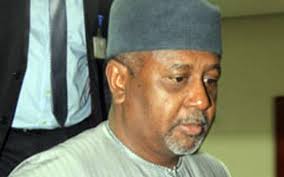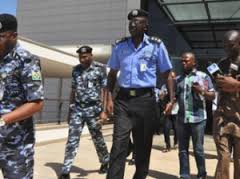The Federal Government has begun initiatives aimed at stopping the insurgents’ capacity to recruit new members.
One of such initiatives is the Countering Violent Extremism (CVE) Programme initiated by the Office of the National Security Adviser (ONSA) in collaboration with the European Union (EU) through the Instrument Contributing to Stability and Peace (ICSP).
The programmes aims to “stem the tide of radicalization, reduce the incidence of violent activities, change the behaviour of violent extremists and counter the narrative of extreme groups while promoting core national values”.
National Security Adviser (NSA), retired Colonel Sambo Dasuki, disclosed this at a press briefing Friday in Abuja. He was represented by a director in the Office of the NSA, Fayima Akilu.
According to him, the key focus of the de-radicalization programme is “to stop the insurgents’ capacity to recruit, get those who do not want to fight anymore out of the fight, stop those who want to join the fight from joining and give the youths and the populace a reason to hope”.
The NSA said the programme is built on three main components of counter radicalization, de-radicalization and strategic communication.
He said the rise of violent extremist groups in the country needs to be attacked on different fronts, hence the adoption of a soft approach “that seeks to counter the ideology of violence, build trust and community resilience at the grassroots”.
In his view, radicalization is the process of adopting an extremist belief system backed up by narratives with compelling drive on individuals on groups to use, support or facilitate violence as a method of effecting societal change.
He said that the counter radicalization programme is intended “to create awareness of the threats of violent extremism, identify and strengthen credible voices in communities, collate data of religious figures, sects, places of worship and capture the kind of teaching/preaching in schools and worship centres, identify and strengthen channels of distribution of counter-narratives, initiate and conduct training for peace projects including inter and intra-faith”.
He added: “Others are to identify and start-up small business in flash point states, work with law enforcement to increase the reach of community policing and engage the security forces in the field on community building initiatives”.
The Controller General of the Nigeria Prison Service (NPS), Peter Ekpendu said the involvement of the service is not just to ensure that deviants are place locked up, but the fact that the programme shares the fundamental principle of ensuring that would-be terrorists must be dissuaded from radical belief systems in the interpretation of religion and behaviour towards others.
He said the NPS has contributed resources in the development of the project with 12 members of the NPS Treatment Management Team planning for implementation; 26 of the NPS’ most senior officers including the CGP and all the Deputy CGPs; prison policy for managing violent extremist offenders; 20 custodial officers, introduction for the implementation of Derad programme; 40 NPS psychologists to work as part of treatment programme and 30 NPS Imams to work as part of treatment programme.














